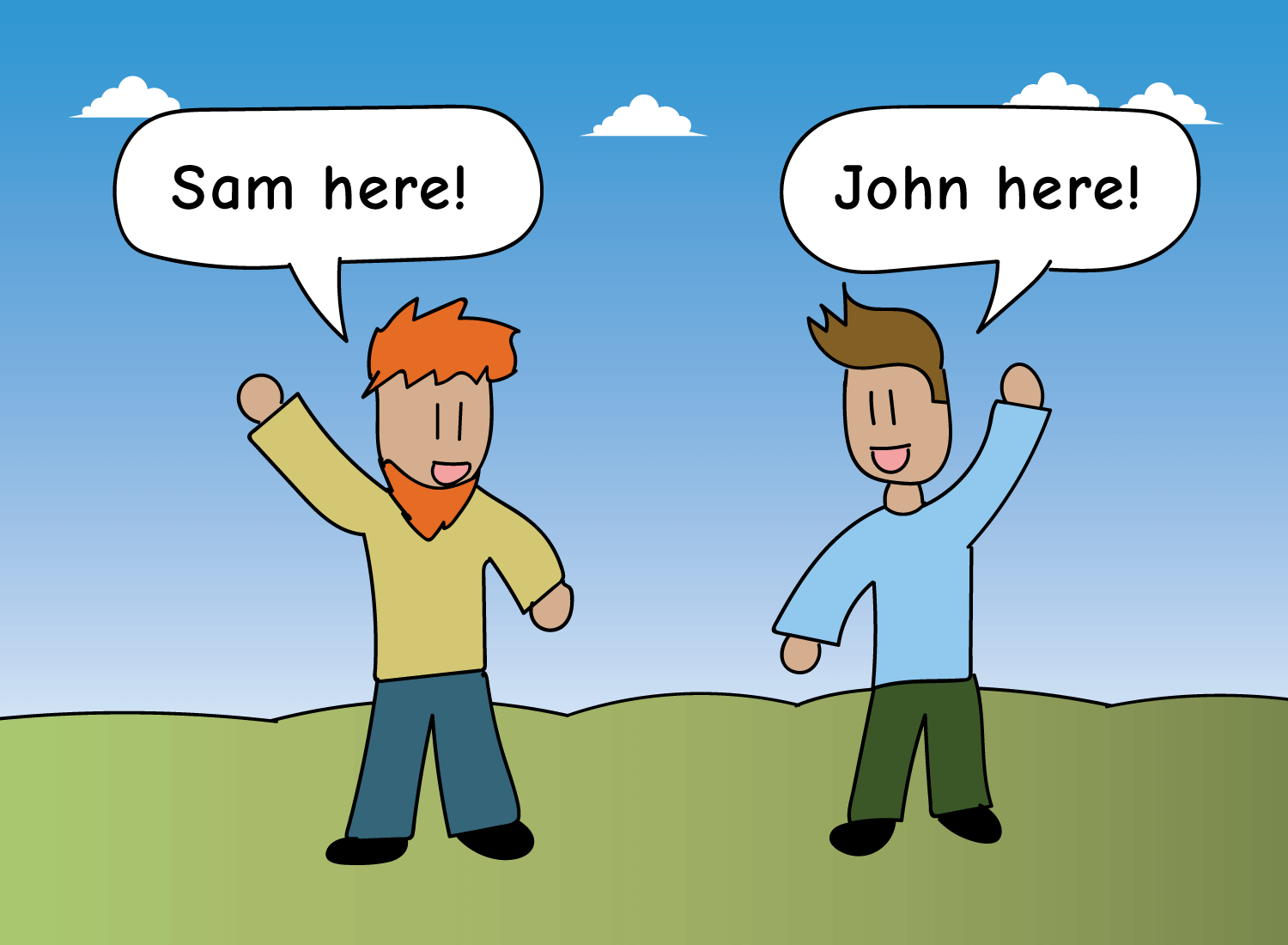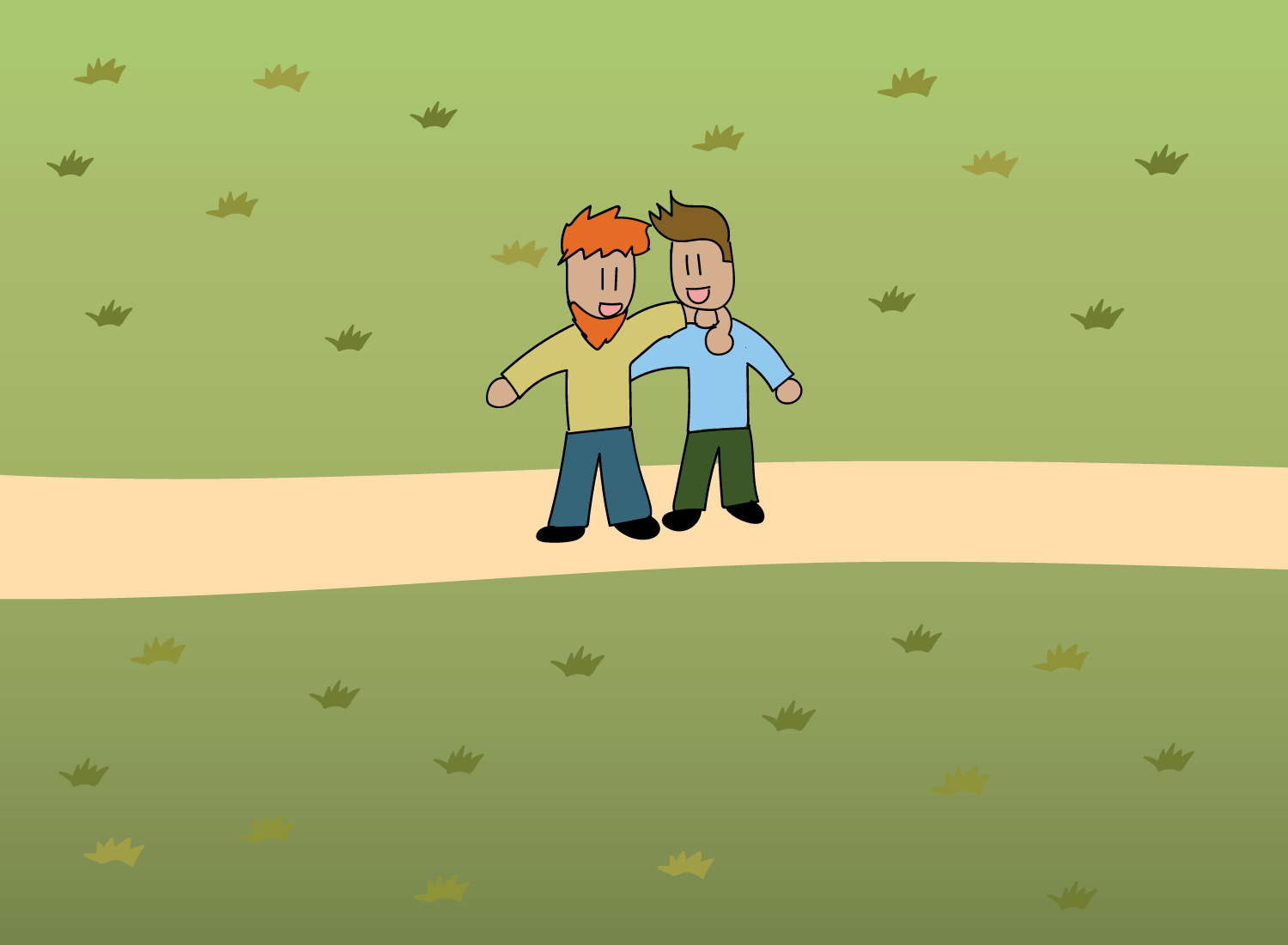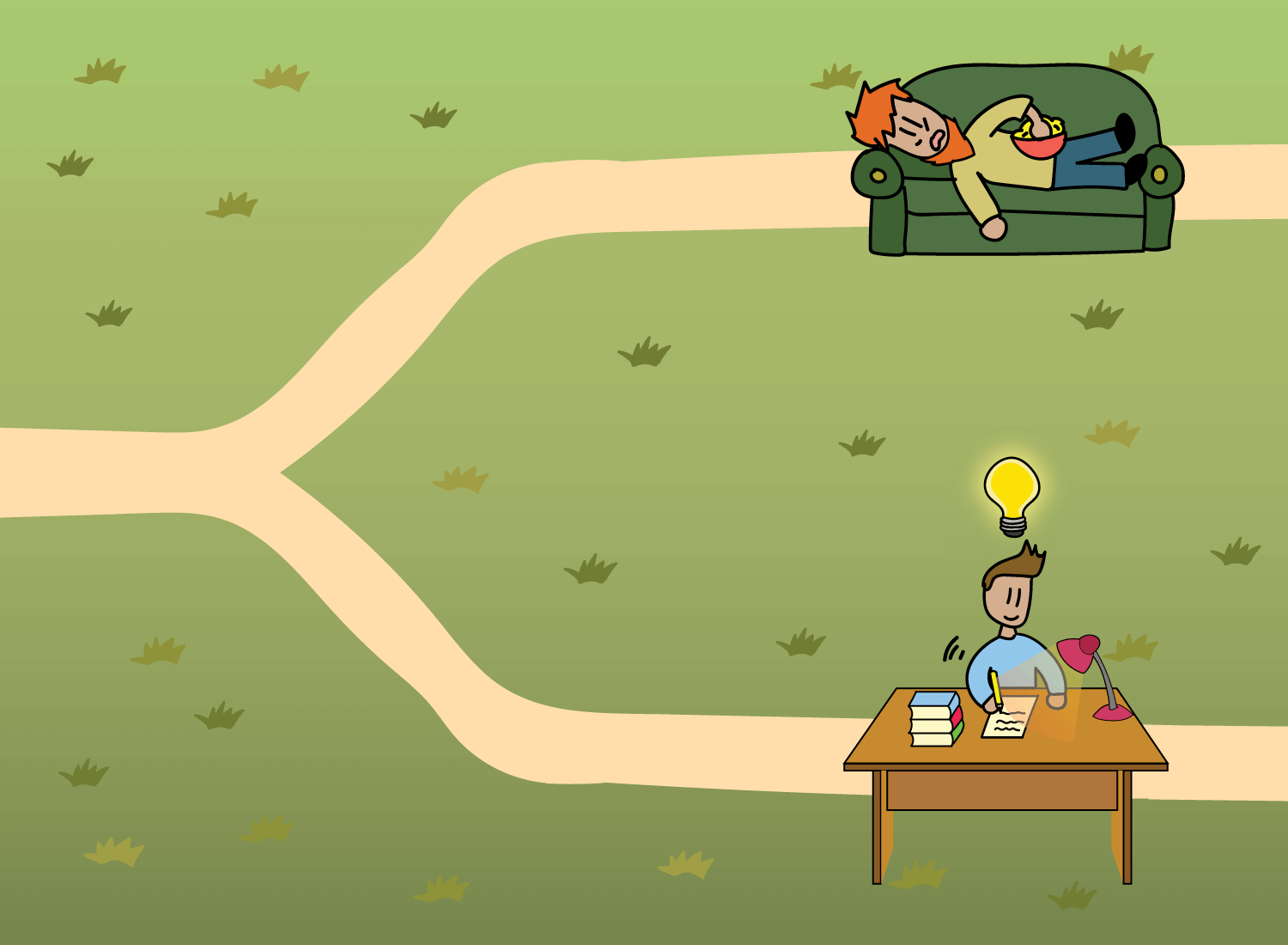Interest-First Friendships
Old friendships fray because you develop new interests over time.
When you first met in high school, you had a certain set of interests that united you. Perhaps it was your love for comics, for a TV show, or even for a particular subject of study. Regardless, there was some entry point into a portal of dialogue that allowed a friendship to materialize.
For the most part, the thing that keeps a friendship going is presence. The more you see one another, the more you allow the aura of familiarity to strengthen your bond. In fact, this familiarity may even supersede the content of your discussions. Simply spending time together is often more important than actually having a substantive discussion about something (this is particularly true in high school, where everything I talked about probably contributed negative value to society).
However, as you get older, things change.
While age isn’t necessarily correlated with wisdom (look at our politicians), age is correlated with the awareness of our mortality. As we get older, we understand that the grains of time are not infinitely spread across a shoreline, but are finitely contained within an hourglass. There are a concrete number of flips remaining, but we will never know when that final flip will be.
This does two conflicting things in the context of our friendships:
(1) It causes us to cherish our lasting relationships, and
(2) It causes us to remove our empty ones.
The problem, however, is that as we get older, it can become difficult to tell which is which.
For example, let’s say hello to Sam and John:
Sam and John have known each other since high school, and they are now in their early 40s. They continue to see one another every few months, and they regularly FaceTime / text each other in between. So with this dynamic, it would seem like a lasting friendship to be cherished.
However, when it comes to the ways they spend their days, it couldn’t be any more different.
Sam has chosen a career that is plagued with indifference. He’s in it purely for the money, and has no desire to learn anything from his job. On top of that, he has no intellectual curiosity for any other activities as well, and spends all his free time binge watching Netflix.
John, on the other hand, has chosen a career full of purpose. His curiosity shines bright each day, and he wakes up energized by the worthwhile problems he needs to solve. He dedicates his free time learning more about the world through the lens of his interests, and is fascinated by what he finds.
From this perspective, Sam and John have completely diverged in regard to what they find important. There is almost no alignment in their interests, and the intellectual worlds they occupy bear no resemblance.
So which is it? Are Sam and John still great friends, bound by the aura of familiarity? Or are they distant strangers, diverted by the differences in worldviews?
In other words, what matters more when it comes to friendships: your shared history or your current interests?
Here’s the way I see it. You have to respect the importance of both, but do so with different frames:
(1) Use morality to determine the importance of shared history, and
(2) Use curiosity to determine the importance of current interests.
Let’s start with #1.
Shared history is important because you cannot decouple the past from the present. The person you are today is the result of all the relationships and friendships you’ve had up to this point. A big part of accepting who you are today is to acknowledge the bonds that have helped to cultivate your sense of self from then until now.
But if the moral values you hold today are incompatible with those of an old friend’s, then it’s time to discard that shared history. The past is important only because of the lessons it could teach you about the future. And if someone’s moral compass doesn’t resemble yours, then there will be no fruitful lessons to learn from the person anymore.
On the other hand, if their moral compass is aligned with yours but you just lead different lifestyles, then it’s up to you to determine that friendship’s importance. Even if you’re not discussing anything too substantive, does the person’s mere presence exude warmth? Does simply knowing one another make you better people? In that case, that shared history may hold up just fine.
Let’s now move on to #2.
I was talking to a friend recently, and he spoke of the difference between a social graph and an interest graph. Your social graph is mostly bound by the people you’re physically surrounded by and are connected through history (family, high school friends, etc.). Your interest graph, however, is developed through people you’ve met through your interests first.
The internet has massively widened the scope of career opportunities, but it has also done so for interest-first friendships. These are friendships that take shape because you published or created something that signifies your curiosities, which then act as a beacon for people to find and connect with you.
For most of human history, geography acted as the bottleneck for friendships. But now, it’s curiosity. It doesn’t matter where in the world you’re located – if your ideas are compelling enough, it’s inevitable that relationships will take shape and orbit around your shared curiosities. This leads to discussions that dismantle the on-ramp of small talk, and shuttle you right onto the highway of meaningful dialogue.
So if you find yourself intellectually isolated with your “shared history” friends, look toward the internet to find your “interest-first” ones. Create a piece, share an idea, contribute a thought. By doing so, you increase the chances of finding someone that shares the same enthusiasm you do for the ideas you care about.
You can have the best of both worlds in the one we live in today. You can continue to cherish the friends of your past, while also igniting your intellectual curiosity with the new friends of today.
Get your ideas out there, and watch those possibilities open up.
_______________
_______________
For three more stories and reflections of this nature:






